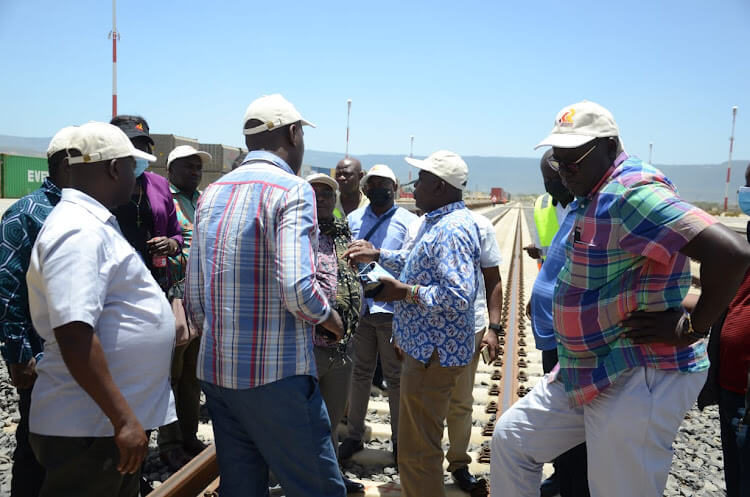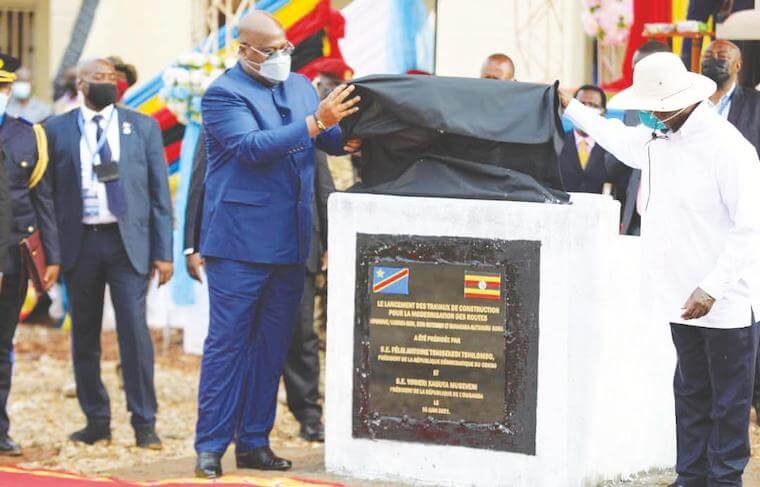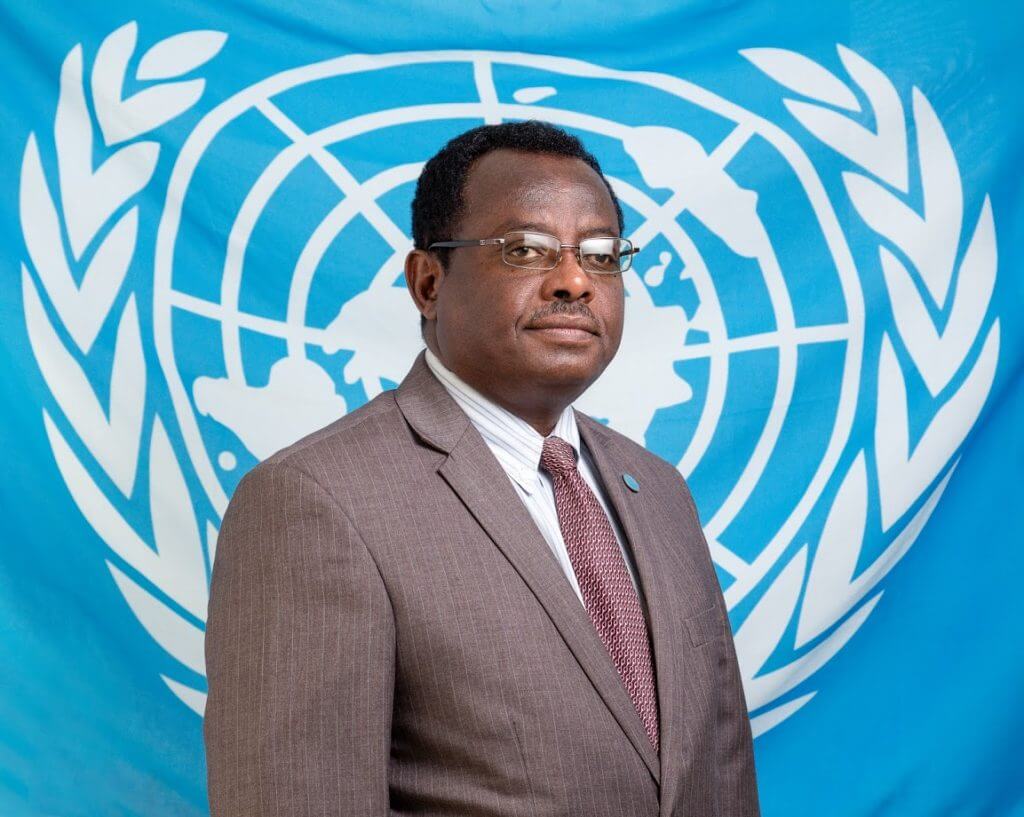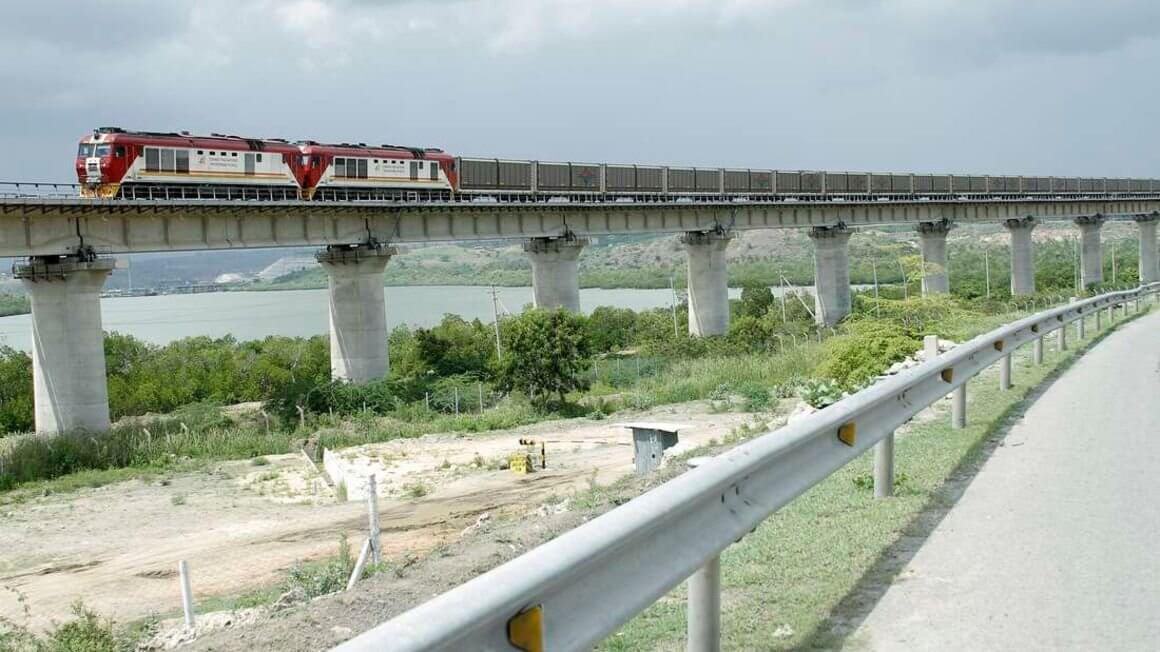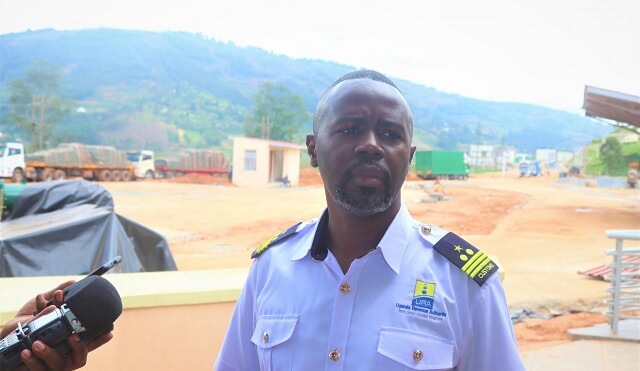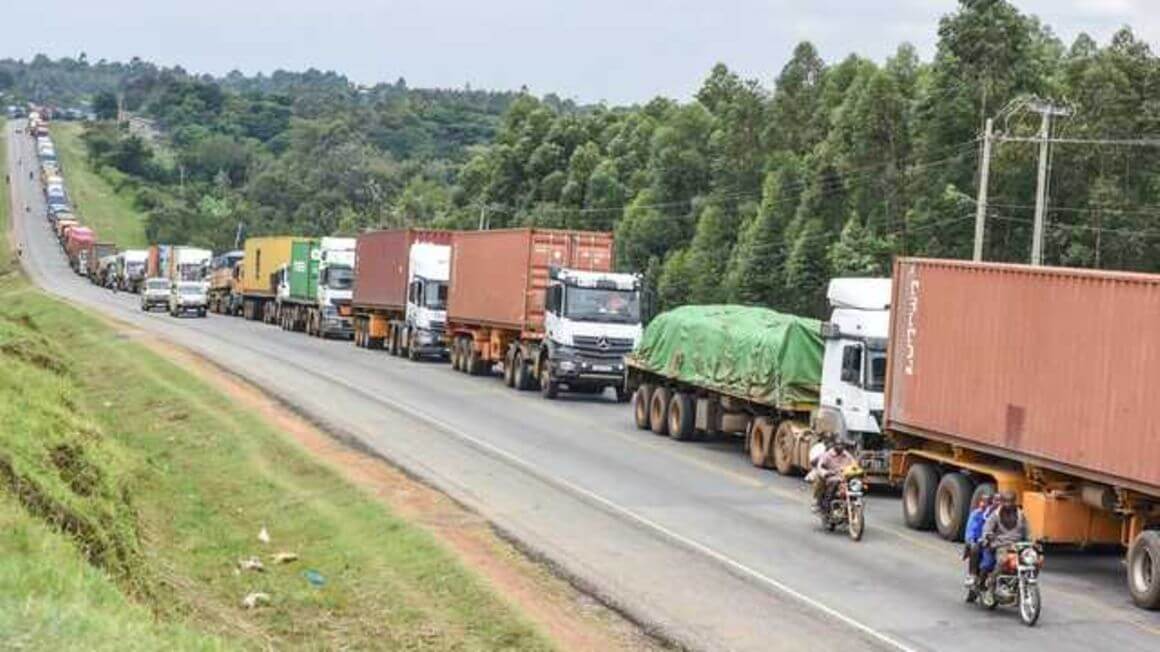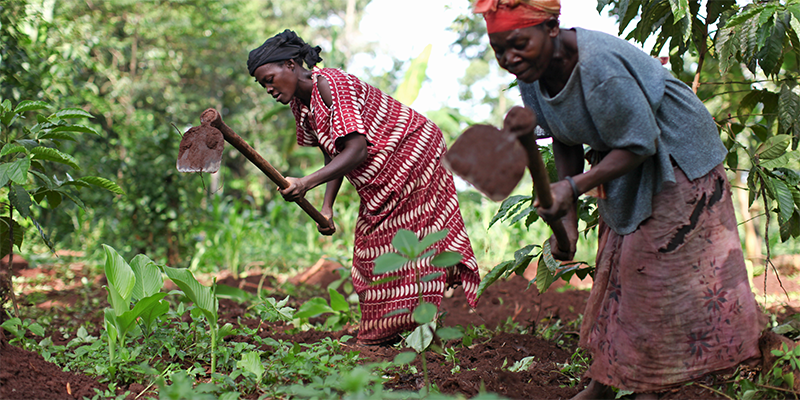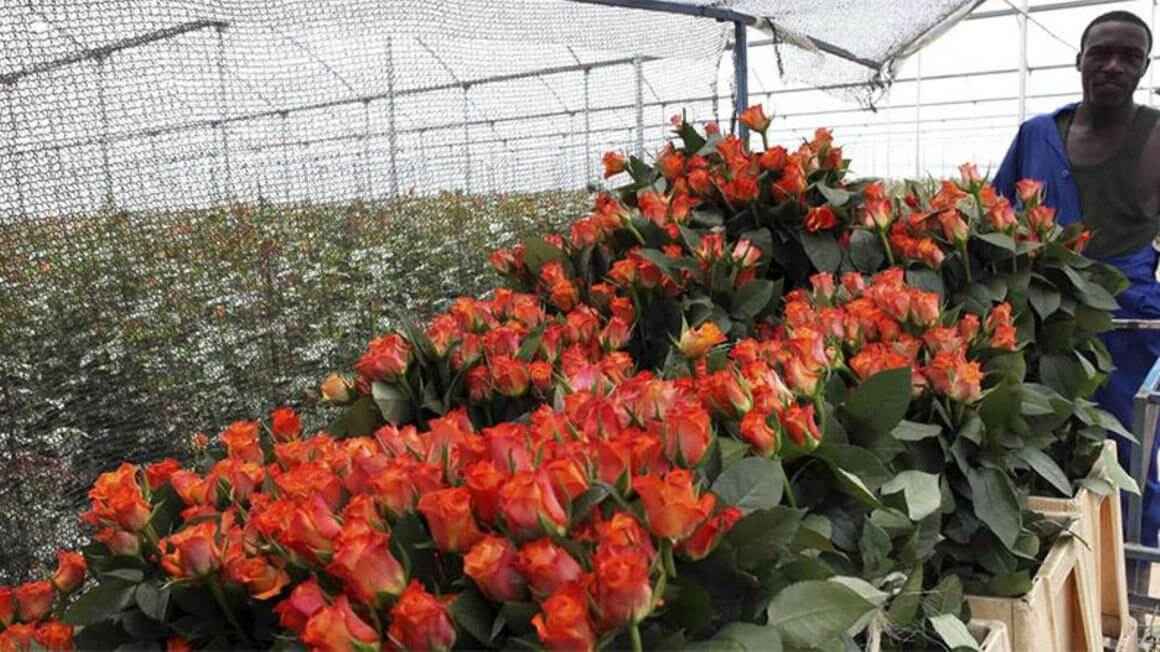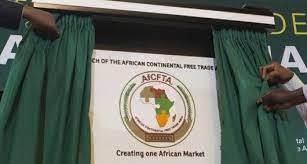In Summary Uganda accounts for 83.2 per cent of transit cargo through the port of Mombasa. South Sudan takes up 9.9 per cent while DR Congo, Tanzania and Rwanda account for 7.2 per cent, 3.2 per cent and 2.4 per cent respectively. The Ugandan government has started warming up to the Standard Gauge Railway following the exposure of how it works. On Saturday, the Kenya Railways MD Philip Mainga led a Ugandan Finance, Planning and Economic Development Parliamentary Committee on a fact-finding tour of the Naivasha Inland Container Depot. Minister of State General Duties, Ministry of Finance, Planning and Economic Development, Uganda, Henry Musasizi led the delegation. The nine-member and three support staff delegations started a seven-day fact-finding mission in Dar es Salaam, Tanzania before making their way to Mombasa Port and finally Naivasha Inland Container Terminal. The Chair of the Committee Keefa Kiwanuka and deputy chairperson Avur Jane Pacuto were present. At the Naivasha ICD, the delegation was keen to learn how goods were being moved seamlessly from SGR to MGR for onward transmission to Malaba then Uganda. “We decided to do a visit to Kenya particularly to appreciate how the movement of our goods along the Northern Corridor is. We did our visit in Mombasa at the Kenya Ports Authority and now we are here,” Musasizi said. Kenya and Uganda in May last year joined forces to rehabilitate the old meter-gauge railway as a means of enhancing the seamless movement of goods. The Kenyan government has since revamped...
Uganda warms up to Naivasha dry port, SGR
Posted on: March 14, 2022
Posted on: March 14, 2022

